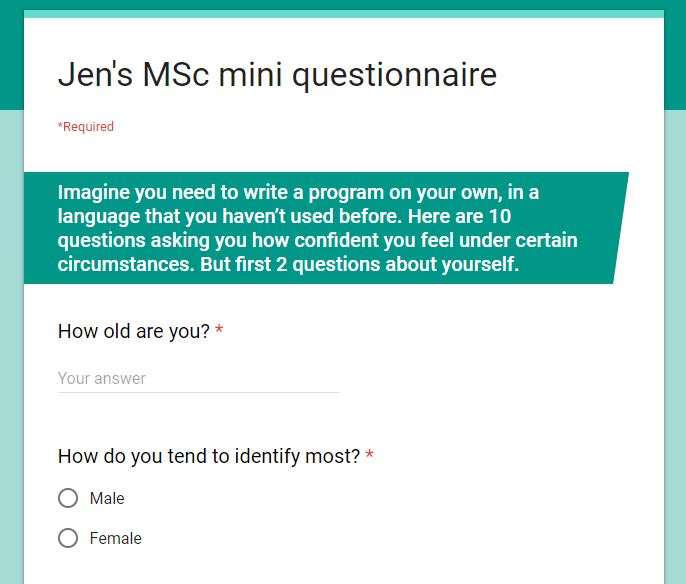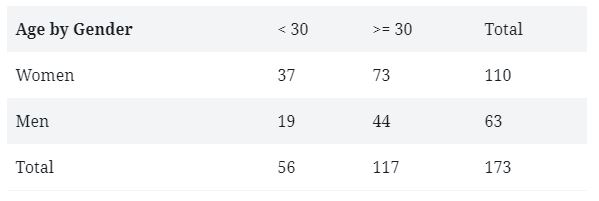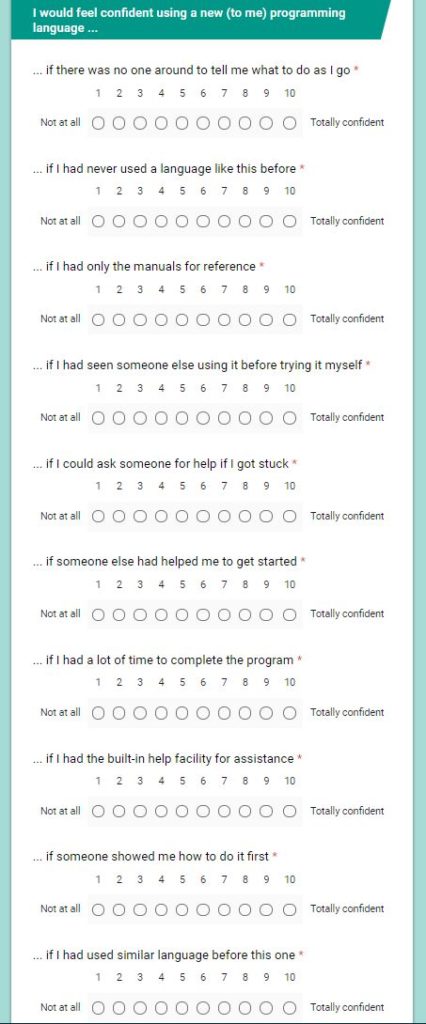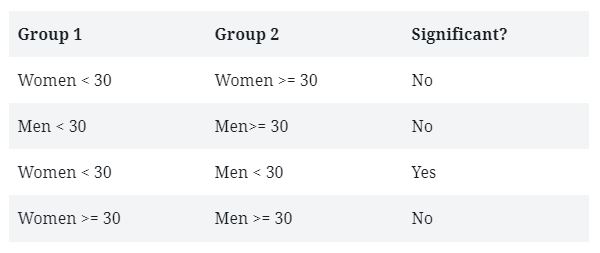Lily the Pink by The Scaffold (1968) was my introduction to efficacy. Especially Jennifer Eccles who like me ‘had terrible freckles’. Medicinal compound had the ‘desired and intended result’ and she was able to join in all the boys games! I apologise if you’re too young for this reference.

Summary: I carried out a survey of software engineers to establish if there was a significant difference in computer self-efficacy between genders. As expected women were less confident in their coding skills than men. However men over 30 did not show a greater confidence in their abilities than women in the same age group. I propose that this is related to the retention of women in the software industry. Less able women choose to leave the profession and more confident, better qualified women remain. My theory is based on research carried out into pull requests and gender in GitHub. To find out more read on …
Women and Self-Efficacy
50 years after Lily the Pink I decided to investigate self efficacy in women software engineers, as part of my dissertation. Do women think that they produce the desired or intended results? In other words, my question was …
How good do you think you are at being a software engineer?
To find out I created an online questionnaire using Google Forms. I distributed the form via LinkedIn and Twitter. It reached over 30,000 people and I received 173 responses (0.6% completion rate).

The questionnaire was anonymous but I collected age and gender information fig. 2

Ten questions were set with the answers on a scale of 1 to 10, from not at all confident to totally confident. Each question gave a different scenario for the developer to imagine.

To establish the level of confidence someone has in their own programming abilities the individual scores from each question were summed to give an overall total per participant. The mean for the All Women group was 72.16 and for the All Men group 75.57. A t-test was applied and showed that this difference was significant and not just a result of random chance. So men have more confidence in their own coding abilities than women. Not really a surprise there.
In order to understand whether age was a factor, the Women and Men groups were then broken down into two further groups of those respondents less than 30 years old and those not less than 30. T-tests were again applied to determine significance (fig. 4). The surprising result here is that the women over 30 are not significantly less confident than men over 30.

Why are older women as confident as older men in their programming ability?
The results of the online survey confirmed that programmers demonstrated different levels of self-efficacy by gender. The results by age were more surprising, I had expected younger women to be more self-efficacious. The results show that this is not the case and that the gender difference is significant in the under thirties. This difference could be explained by the theory that women tend to leave the tech industry, for various reasons. Those that choose to stay are more likely to have greater ability and be better qualified and therefore have higher self-efficacy. This theory was proposed by Terrell et al. (2017) in their excellent report about gender and GitHub pull requests. You can download it here.
This piece of research is a small investigation in a larger body of work concerning women and collaboration in pair programming. Look out for further blogs on other aspects of my research.